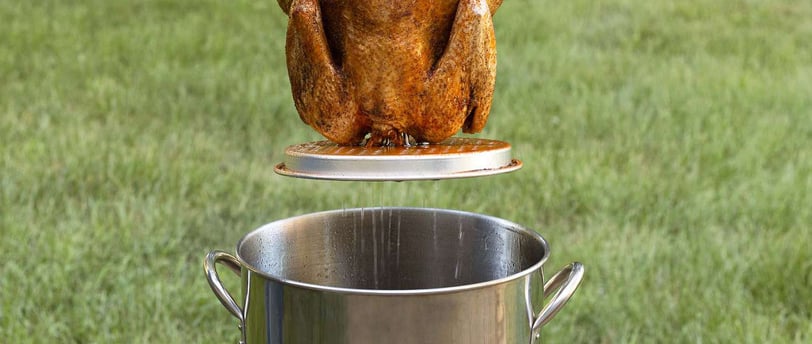Turkey Frying Precautions: Awareness of Turkey Fryer Hazards
The U.S. Fire Administration notes that Thanksgiving stands as the peak day for home cooking fires, surpassing the daily average for such incidents by over threefold, resulting in an annual average of $28 million in property damage. While deep-fried turkey may offer a tantalizing twist to the traditional oven-roasted fare, the process of deep-frying an entire bird poses significant risks.
FIRE DAMAGESMOKE DAMAGEFIRE PREVENTION
Central Home Service
3/15/20242 min read


Thanksgiving, a time when eighty-eight percent of Americans indulge in turkey, unfortunately, also marks one of the highest occurrences of home fires attributed to cooking incidents – particularly with the emergence of turkey fryer fires. The U.S. Fire Administration notes that Thanksgiving stands as the peak day for home cooking fires, surpassing the daily average for such incidents by over threefold, resulting in an annual average of $28 million in property damage. In 2019 alone, U.S. fire departments responded to approximately 1,400 home-cooking fires on Thanksgiving. While deep-fried turkey has gained popularity for its crispy skin and succulent meat, it is important to be aware of the hazards associated with turkey fryers.
Understanding the Risks
Turkey fryers pose several risks that can lead to fires, burns, and other accidents. The main hazards associated with turkey fryers include:
Hot Oil: Deep-frying a turkey requires large amounts of hot oil, which can cause severe burns if mishandled.
Flammable Materials: Using turkey fryers near flammable materials, such as wooden decks or structures, can easily ignite and result in fires.
Instability: Turkey fryers can be top-heavy and prone to tipping over, causing hot oil to spill and potentially cause burns or fires.
Overheating: If the oil in the fryer becomes too hot, it can ignite and start a fire.
Precautions to Take
To ensure a safe and enjoyable Thanksgiving, it is crucial to take the following precautions when using a turkey fryer:
Read the Instructions: Before using a turkey fryer, carefully read and follow the manufacturer's instructions to understand the proper operation and safety guidelines.
Use the Fryer Outdoors: Set up the turkey fryer on a flat, stable surface outdoors, away from flammable materials and structures.
Thaw the Turkey: Make sure the turkey is completely thawed and dried before placing it in the fryer. Excess moisture can cause the oil to splatter and potentially start a fire.
Monitor the Oil Temperature: Use a thermometer to ensure the oil does not exceed the recommended temperature. Overheated oil can ignite and cause a fire.
Keep a Fire Extinguisher Nearby: Have a fully charged fire extinguisher rated for flammable liquids within reach in case of emergencies.
Stay Alert and Never Leave Unattended: Never leave the turkey fryer unattended while it is in use. Stay alert and keep children and pets away from the fryer.
Deep-fried turkey can be a delicious addition to your Thanksgiving feast, but it is essential to prioritize safety when using a turkey fryer. By understanding the risks associated with turkey fryers and taking the necessary precautions, you can prevent accidents, fires, and injuries. Remember, the joy of Thanksgiving lies in sharing a meal with loved ones, not in dealing with the aftermath of a preventable disaster.


Get The Help You Need!
Don't ignore the signs of basement damage. By recognizing the subtle indicators early on and taking proactive measures, you can safeguard your home and avoid costly repairs in the future.
If you notice any signs of basement damage, it is important to consult with a professional restoration company. Central Home Service restoration contractors have the expertise and experience to assess the extent of the damage and provide effective solutions to protect your home. Call 833-519-1339 or fill out the contact form below.




